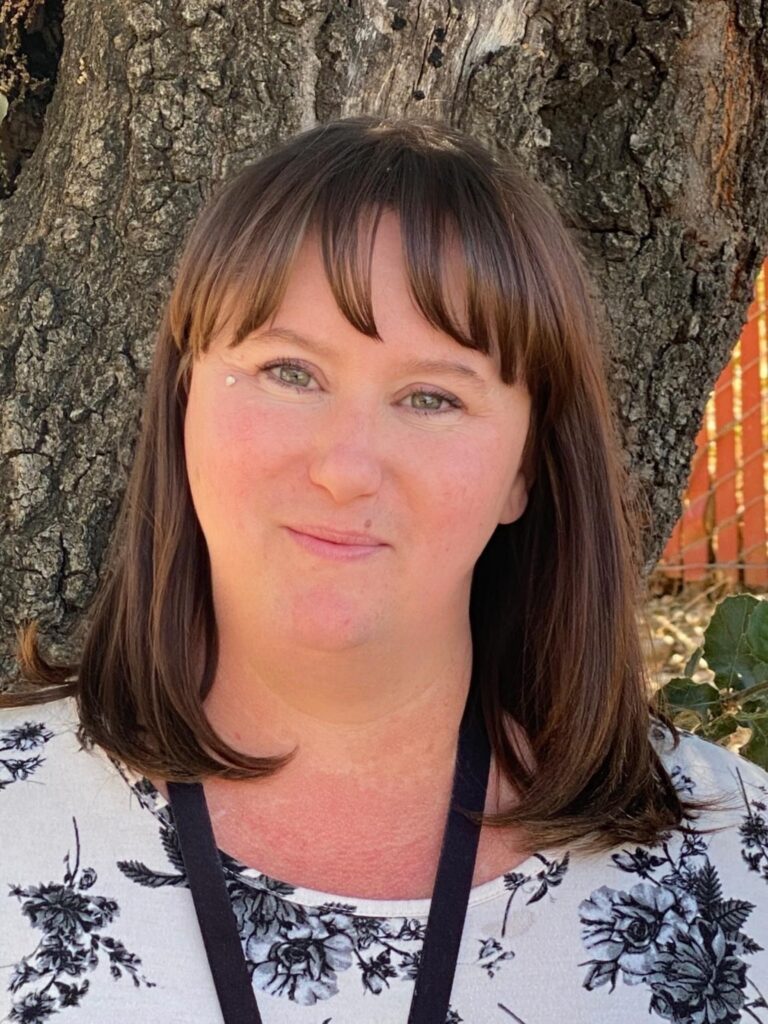The Carnie Kid: Rachel’s “Round and Round She Goes” Roller Coaster Life -Part I
From a catastrophic childhood marked by drugs and abuse…to a seemingly idyllic carnival career…to becoming a habitual thief surviving on the streets, Rachel Puccinelli was facing 35 years in prison—until a judge, a prison chaplain and a case worker changed the trajectory of her life.
A Three Part Story
PART I: In which Rachel joins a carnival, marries, makes lots of money, is abandoned, loses everything, and becomes exactly like her parents.
In an educational film from the 1950s, we see 12-year-old “Suzie” sharing her aspiration of becoming a wife and mother…or a nurse, or a teacher or the then-glamorous profession of stewardess (where her chances of meeting a man who could provide increased significantly). Little “Johnny” also wanted to be like his dad. Of course, that was back when the main “influencers” in a child’s life were their parents.
Except for the occasional student “keg party,” alcohol was rarely a thing. And drug use even rarer. Saddle shoes, Brylcreem (“a little dab will do you”) crew tops, poodle skirts, black-and-white TV (still in its infancy), board games and playing outside were. The word “wholesome” defined almost every kid on the block.
One of the most “edgy” pursuits a child from that era could indulge in, was to run away and join the circus—or its colorful cousin, the iconic carnival. Joining either traveling type show was considered exciting—an escape from the boredom of post-war suburbia or too-strict parents.

Rachel Puccinelli, a former New Life recovery student, and now Guest Services Case Manager at the Mission, joined a traveling carnival at the age of 16. Unlike her 50s teenage counterparts, far from having the kind of parents she wanted to emulate, she wanted to escape her abusive and drug-riddled home. At the age of 14, she fled to her boyfriend’s family house. That quickly became a “from the fire to the frying pan” failed escape plan when she discovered his family were also addicts.
Everyone’s an Addict
It seems there wasn’t anyone the teenager knew who wasn’t an addict, an increasingly common state of affairs for much of Shasta County and the North State at large. So, it was no surprise that she too began using meth. So much for the inner vow of “I’ll never be like my parents.” Unfortunately, we tend to default to what is familiar, rather than the sin we hate, and have tragically become a victim to.

Two years later, hoping to escape the Shasta County drug scene and all that came with that, Rachel joined the Midway of Fun carnival. Unlike the traveling carnivals of yesteryear, there were no bearded ladies or the world’s “smallest” or “biggest” anything. Instead, Midway featured games, rides, food and live events. No “freaks,” just fun. The carnival would become her home for the next eight years, ironically marking the “midway” point between girlhood and womanhood.
 Rachel began her carnival career picking up balls from a goldfish bowl. Later, she worked an attraction called, The Dozer, a game where you drop in a coin, and it rolls down until it lays flat—pushing all the rest of the coins off the edge. Besides being a cinch to operate, it was also an easy metaphor for Rachel’s life. By age 16, she was already highly experienced at living life on the edge—and, as her future would reveal, even being pushed over it. But in the game of life, there is no prize for that.
Rachel began her carnival career picking up balls from a goldfish bowl. Later, she worked an attraction called, The Dozer, a game where you drop in a coin, and it rolls down until it lays flat—pushing all the rest of the coins off the edge. Besides being a cinch to operate, it was also an easy metaphor for Rachel’s life. By age 16, she was already highly experienced at living life on the edge—and, as her future would reveal, even being pushed over it. But in the game of life, there is no prize for that.
Burst Goes the Bubble

Before long, Rachel was promoted as a nanny to the carnival owner’s children—a job that gave her coveted freedom in an otherwise grueling business that meant hard work with little pay. Eventually, the carnival had so many children running about, they opened up their own school housed in an oversized trailer. Soon, Rachel started teaching the whole brood of “carnie” kids.
“It was a wonderful life,” says Rachel. “I loved working with the children. My husband had reached a pretty high level in the carnival, so we were able to travel and explore outside of work, which most workers never get to do. We also made a lot of money.”
If only all those things in and of themselves constituted a recipe for happiness. The truth is, even the most idyllic of environments can quickly turn sour once the emotional trauma of your past catches up with you—usually precipitated by events over which you have no control.
That was certainly the case with Rachel. Although she loved the carnival and the feeling of family—of people looking out for one another—something she had never experienced during her formative years, eventually that “kumbaya” bubble burst and her repressed trauma surfaced.

“I Kept the Trailer, He Kept the Truck.”
Rachel had always dreamed of becoming a mother. Sadly, three consecutive ectopic pregnancies, with one causing irreversible damage to her fallopian tubes, meant if she fell pregnant again, it would most likely kill her.
“All I ever wanted was to be a mom and yet all I had ever done was take care of other people’s children,” says Rachel. “Then I find out if I had a child, it would kill me. To add insult to injury, my husband left me because he was afraid he might get me pregnant. And that was the end of it. He kept the trailer and I kept the truck, and there I was, still living and working in the same place he was, and it was all just too much.”
If “he kept the trailer and I kept the truck” sounds like the title of a bad country song, the life behind the lyrics was about to get a whole lot worse. For Rachel, it seems the Midway of Fun had turned into the Midway of “I’m Done.”
To numb the pain, Rachel plunged headlong into drinking again. But highs wear off, and reality makes a cold, hard landing pad. That’s when the girl who had been abused by just about everybody in her young life, decided to pull the plug.
Thankfully, Rachel’s suicide attempt was interrupted just in time. A friend drove her to a mental health facility where they gave her two choices: be admitted to the facility or go live with her aunt in Sacramento. Returning to the carnival was not an option, so Rachel went to live with her aunt and shortly after, began working with children again at a daycare center. While there, she met her current husband, then her boyfriend. Unfortunately, her heavy drinking remained unabated.
Dope to Cope: The Stalker You Know
Within six months into her new relationship, she received a call about a baby who was being given up for adoption. The birth mother was a family acquaintance who, coincidentally, Rachel had taken care of from age four to twelve. Barely 18, the baby’s unmarried mother already had an almost 19-month child and couldn’t take care of another one. So, she contacted Rachel’s sister.
 Rachel and her boyfriend brought the baby, whose name was Kira, home the day she was born. The joy of finally becoming a mother, along with the responsibility that goes with that, motivated Rachel to quit drinking. For a while, life was wonderful—until it wasn’t.
Rachel and her boyfriend brought the baby, whose name was Kira, home the day she was born. The joy of finally becoming a mother, along with the responsibility that goes with that, motivated Rachel to quit drinking. For a while, life was wonderful—until it wasn’t.
Addiction is like a stalker. It lurks around in the shadows, sometimes for years, until you’re the most vulnerable, the most susceptible. And then it waits. It waits for the opportune time to strike. It could be an injury, an argument with a partner, abandonment, stress, or a disappointment. Really, it hardly matters what the trigger is. Disappointments and bad things happen to everyone, but not everyone starts drinking, shoots up, or snorts white powder to cope. The difference is the “go to” a person is accustomed to. Many people use more “respectable” ways to escape what ails them, but because those coping mechanisms are not visible, such as a drug or food addiction, they are not as likely to be judged by others.
Keeping it Fake
What makes the difference is the root system—and the impulse to self-control ratio. And while some can just make the decision to stop using and never use again, that’s a rare occurrence. It’s also less usual for someone to quit using without a spiritual transformation taking place. The first thing that needs to go is shame. In a society replete with “fake” everything, condemnation and shame could be defined as “fake conviction.” It’s easily the stealthiest and the most sabotaging emotion, derailing even the most earnest and faith-filled of recovering addicts.

Even with a new heart, habits must also change—especially the habit of reacting vs. acting. If a recovering addict can learn to stop, take a deep breath, then prayerfully ask themselves, “This decision is going to effect the rest of my life, so what kind of life do I want?” then they have a better chance of keeping the “familiar spirits”—those centuries-old entities that know just the right lies to whisper and buttons to push—at bay.
For Rachel, the habit of using drugs and alcohol—her default since childhood when it was first modeled, then adapted, however reluctantly—was triggered by yet more life-changing events: “The pressure of being a new mom, having marital issues, working full time, and then having back problems, led me to start taking prescription pain medication and, Wham, I was hooked again just like that!” says Rachel.
Once again, Rachel’s life started spinning out of control. Fed up, her husband took their daughter and left. He did not want Kira to be raised in a home with addiction. And there it was: life repeating itself.
Next up – Part II: In which Rachel does “horrible, disgusting things”… and has them done to her. She faces 35 years; that is, until a judge plays “Let’s Make a Deal” and Rachel chooses the door with the winning prize.
___________________________________________________________________________________________
About the Author: Jenni Keast is the Mission’s marketing content coordinator and a lover of jean jackets, the Great Outdoors, photography and all things mid-century. Her favorite authors are Holy Spirit (the Bible) G.K. Chesterson, C.S. Lewis, Leif Enger and Walter Isaacson, to name just a few.
On March 31, 2022, Jenni was in a near-fatal auto accident. Miraculously , she survived and is finally back to doing what God has called her to do and what she loves best: storytelling…especially writing stories of transformation of people who were once stuck in cycles of homelessness and addiction but are now living free from the shame and bondages of the past. “So if the Son sets you free from sin, then become a true son and be unquestionably free” (John 8:36)!


